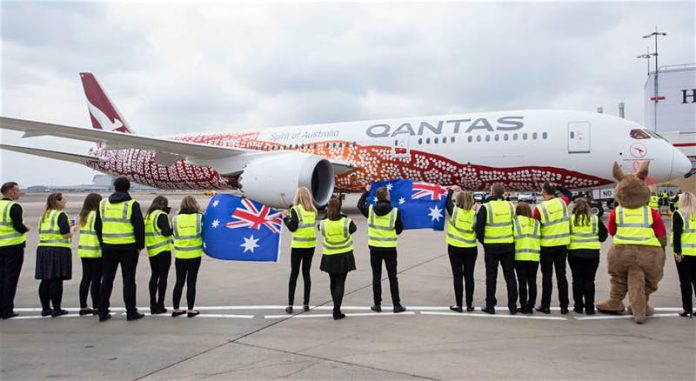Can the human body cope with being in the air for what is essentially a day? We’ll soon find out as Qantas begins testing its new direct New York-to-Sydney route.

Qantas Airways is now testing 19- and 20-hour flights from New York and London to Sydney to gauge how the human body fares with what will be the world’s longest flights or ultra-long haul flights as they’re being called. The trial of marathon voyages – known as Project Sunrise – will take place on Boeing 787-9 planes and will feature a team of 40 people made up of pilots, staff and a handful of passengers. Carbon emissions, we’re being told, will be fully offset.

Before they take to the air, the team will undergo a series of medical checks. Then, when they’re onboard, scientists and medical experts from Monash University will monitor how they fare in the air for such a long period of time. They’ll be fitted with wearable technology that monitors sleep patterns, food and drink consumption, lighting, physical movement and inflight entertainment to assess the impact on health, wellbeing and body clock. Pilots will wear an EEG (electroencephalogram) device that tracks brain wave patterns and monitors alertness.

“For customers, the key will be minimising jet lag and creating an environment where they are looking forward to a restful, enjoyable flight,” CEO Alan Joyce said. “For crew, it’s about using scientific research to determine the best opportunities to promote alertness when they are on duty and maximise their rest during their down-time on these flights.”
Qantas already operates 17-hour flights from Perth to London but the Project Sunrise flights, slated to begin in October, will become the world’s longest, taking the title away from Singapore Airlines’s direct New York-to-Singapore flight (18 hours and 45 minutes). Joyce describes the service as the “final frontier in aviation.” If the test flights are successful, Qantas hopes to launch a commercial service as early as 2020, though the airline will need to secure regulatory approvals first.




